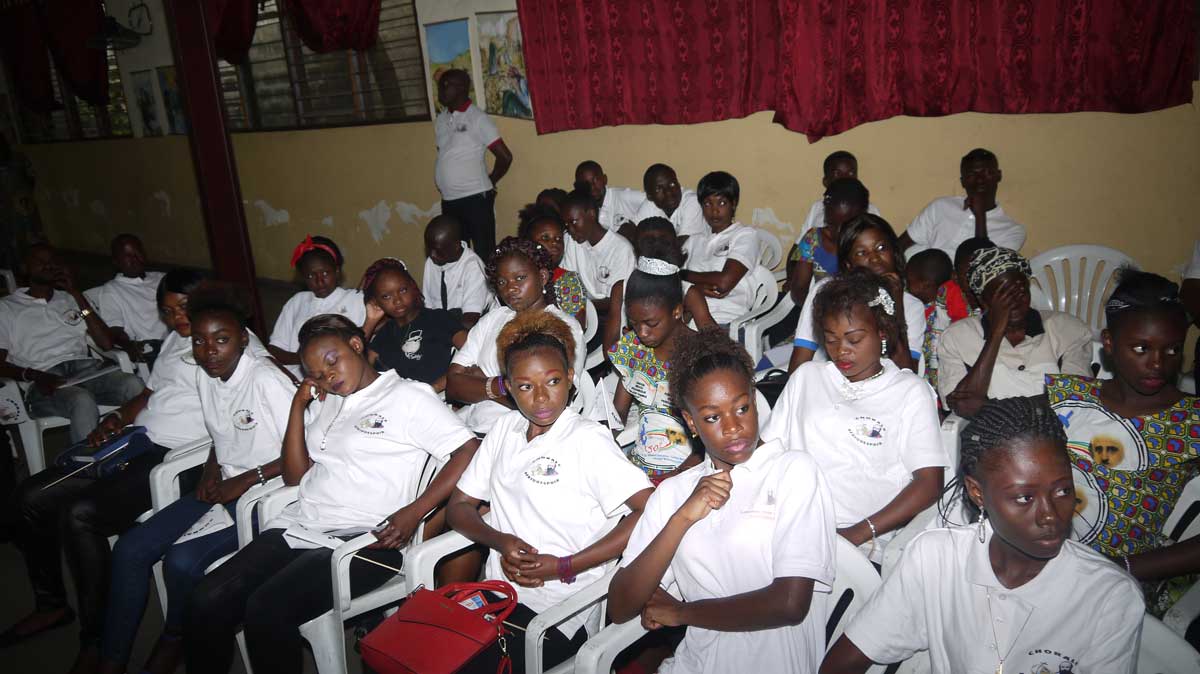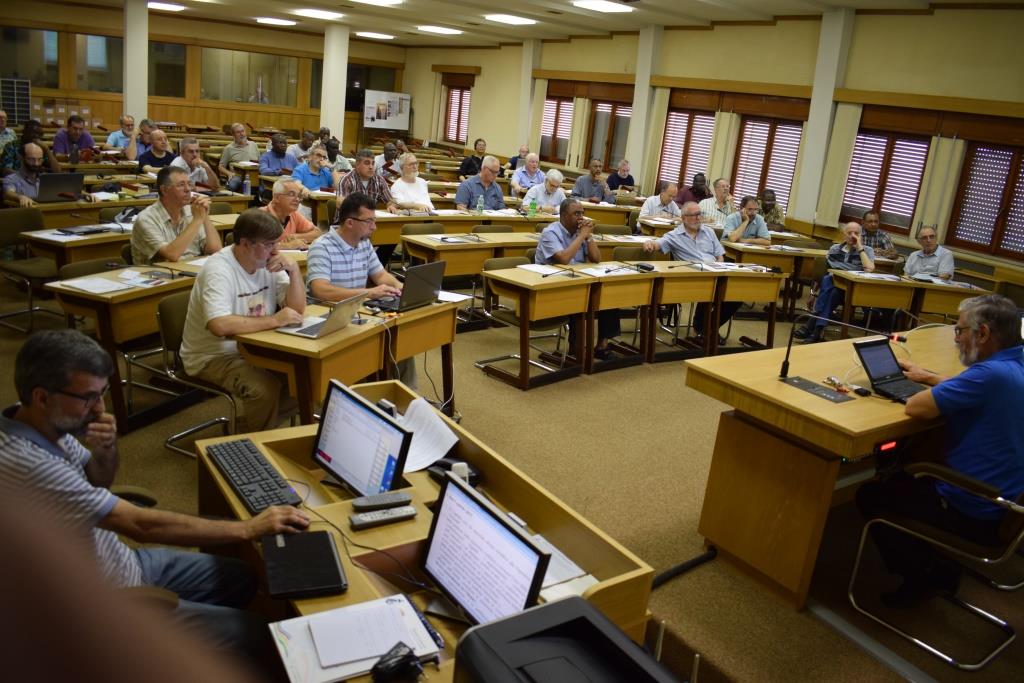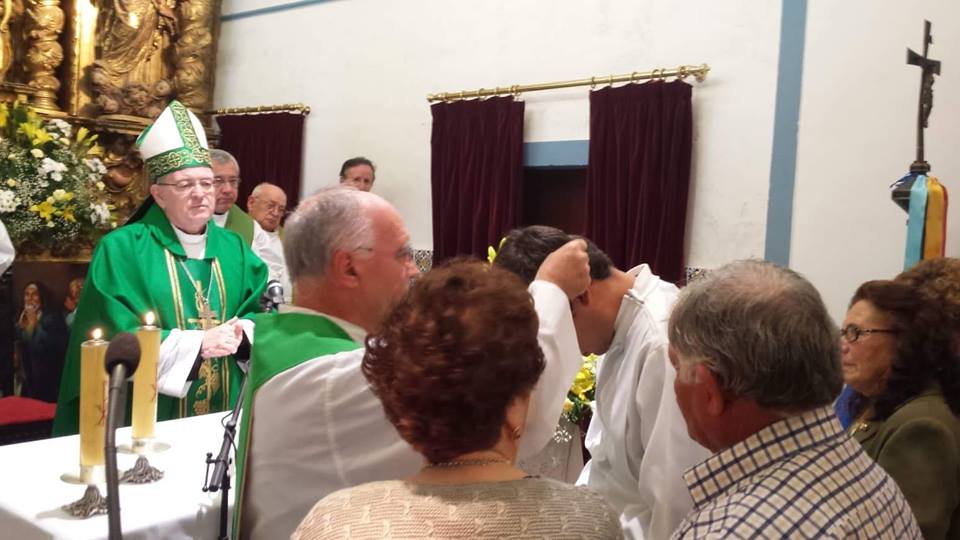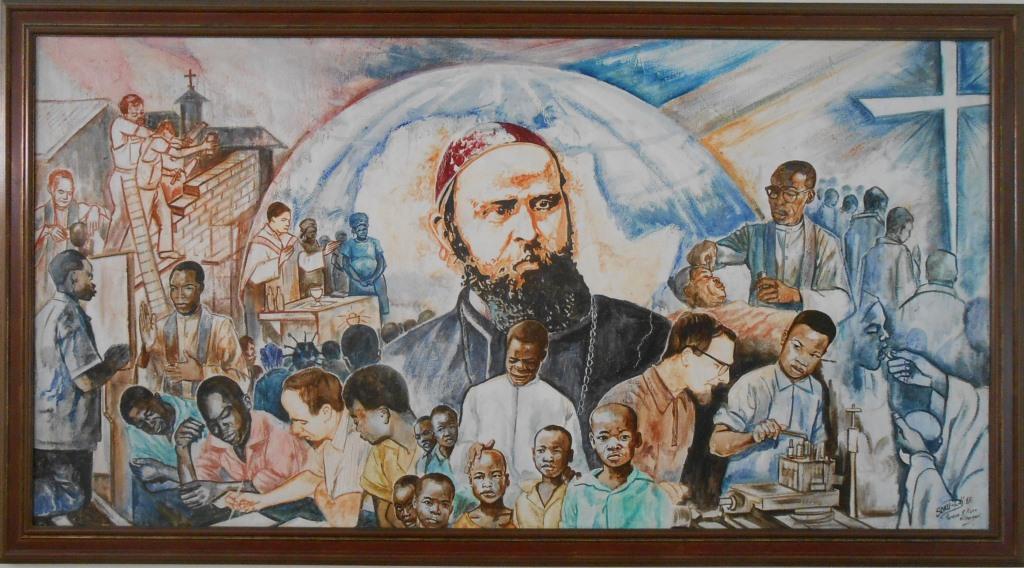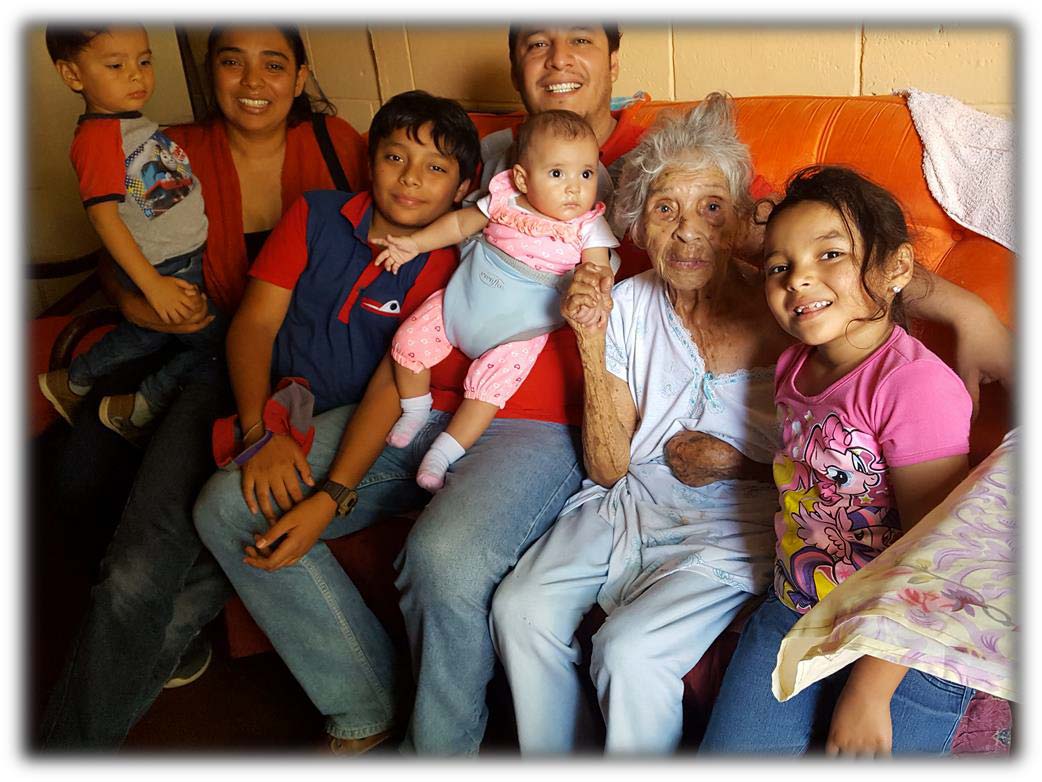
We are the Camey Figueroa family and we are happy to share with you our first steps towards our mission in Brazil.
We have been staying at St. Thomas, San Salvador, since September 7 and will return to Guatemala on the 22nd. This is we are going through or Experience of Detachment and community life prior to our actual leaving for our mission. It has been a very needed and enriching experience.
We could certainly try to imagine many aspects of missionary life, and even think that this experience is not even necessary, because it is enough to be very cautious in figuring out what we would do, carry along, how to work, and so on. However, It is only when you experience something personally that you see and live through things as they really are, and this is what has made this experience a great source of strength for us and for the CLM community of the Central American Province, because all the work we have done here has been possible thanks to the support of the new CLM that is taking shape in El Salvador.
Perhaps the most typical reality that we have experienced is the simple fact that we are a family. By the mercy of God, as a family we have my strengths and we know each other, we know how to be complementary and move on. But it is also true that the current situation is unusual, we never lived this way and it has been the source of some difficulties.
These difficulties have made us aware that we must stick together, be more conscious of our weaknesses and of the need to be patient and persevering in facing them.
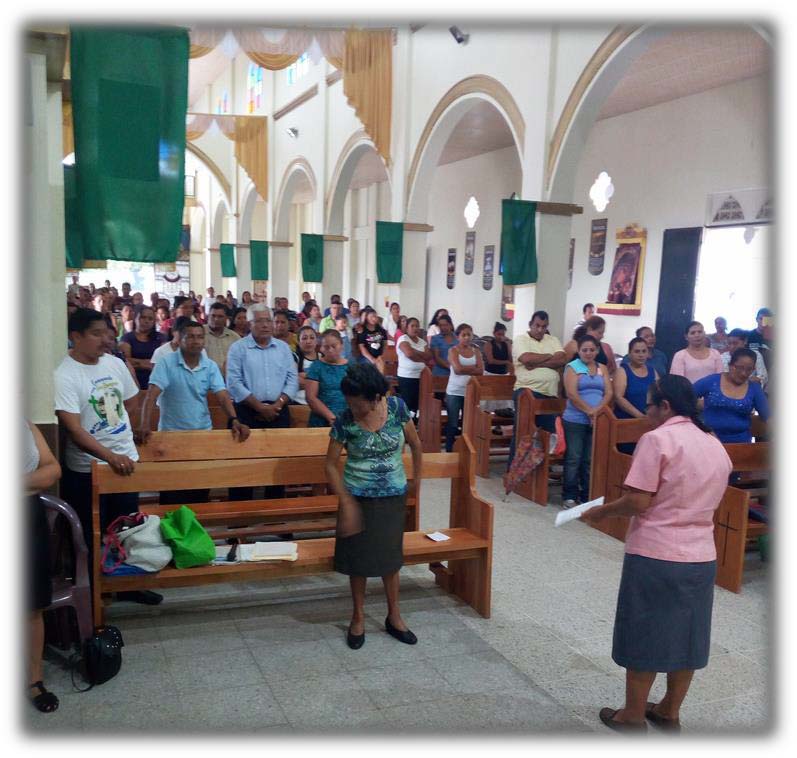
More specifically, our missionary work, and it is worth saying that it is not separate from who we are personally and as a family, is very public in the context of daily life.
For the most part, we have visited seniors, some in poor health, others very old and ill and mostly afflicted by loneliness.
These are elderly people, who had large families, like in the case of Hilda who had six children, two died early and four lived with her. Her husband left her with the four. She had to work a lot and leave the children alone for many hours. Now her children, possibly without any bad intention, but wounded and never healed, reflect this same style.
Now she lives with one son, who only had one child and then his wife left him. This grandson, the only child of her own son, has also gone, but, at least this is good news, he has been in the seminary for several years and keeps in touch with his grandmother.
Even though we are neighboring countries, when we arrived we realized that we were seeing a degree of poverty and violence worse than in Guatemala. The social inequality has gotten worse since they changed from the local currency to the dollar without a referendum and the corruption damages any attempt to development. People are seriously abused and the Church is doing its best to help the communities face this evil.
We are very happy to realize how Bishop Romero was able to leave a mark in the life of many Salvadorans, who are anxiously awaiting their canonization in October. There is no house or church that does not have a picture of him, a true symbol of justice and a sign of God’s love, since he struggled to mediate between the army and the rebels.
These realities are not abnormal, because our societies are suffering in the same way. At time for the urge to enjoy “the good life,” and other times because of the poverty of our countries of Latin America.
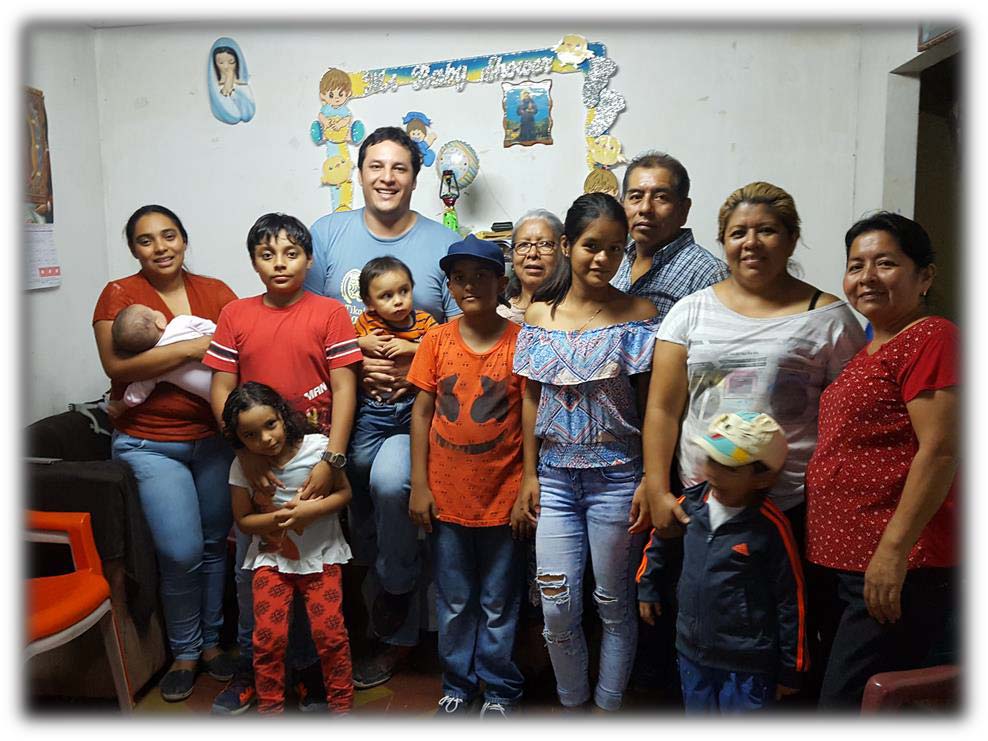
Today, it is very important that we live fully our being family. We must believe in the promises of God, our good Father, so as not to worry about too many things, since the flowers of the field are so well dressed and the sparrows in the sky do not toil and yet eat. And so it is that our Almighty God always remembers us.
Our first preoccupation, or better yet, our first task must be love God and to allow ourselves to be loved by him. Life came from Him, and to Him it shall return (so we say daily) and so we should not be afraid to be father, or mother, or children and even more, to be family.
We thank God who gives us the opportunity to know him in simplicity and in daily life, but above all because it allows us to be witnesses to the abundant generosity of the people who welcome us in their homes, give us everything, and give us the chance to see that this mission belongs to God and not to us, who are simply a family ready to love and do his will, namely, “what is good, perfect and pleasing to God.” (Rom 12:4)
Thankfully, we had plenty of time for other activities, such as the mission promotion visit to the parish of St. Thomas on Saturday evening, where a Neo-catechumenal community gathers, they themselves missionaries ad gentes.

There we attended Mass presided over by Fr. Santiago Piccinelli, MCCJ, who introduced us as a CLM community together with our MCCJ advisor, Bro. Humberto. He also allowed us to promote mission even by selling our products we ourselves make with recycled material.
Human Development is also part of missionary work, as Comboni insists: Holy and able! So one afternoon we held a workshop to teach the women of the “colonias” La Hermita and La Moran how they, too, can make things with recycled material. It was, as always, a great experience, and even children came around. Even Niña Betty, who had her right foot amputated two years ago and still uses a wheelchair while learning to manage her prosthesis, did not give up and came.
Ana Cris and Alejandro, CLM Guatemala





